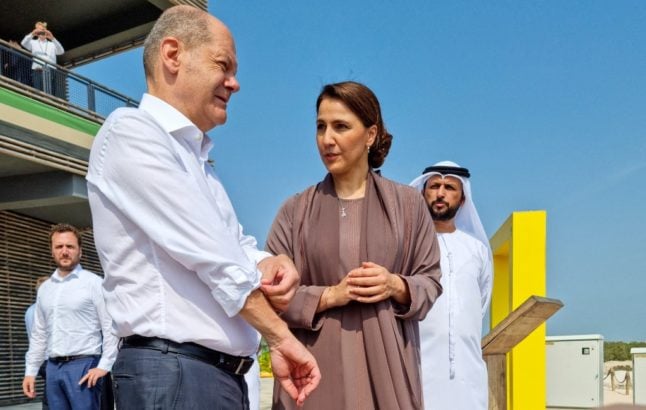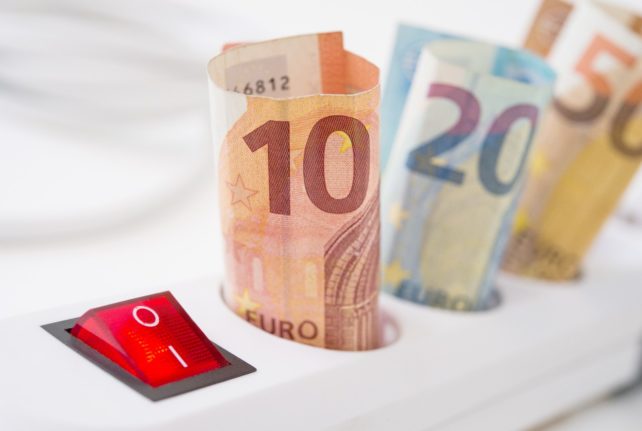Emirati industry minister Sultan Ahmed Al Jaber called it a “landmark new agreement” that “reinforces the rapidly growing energy partnership between the UAE and Germany” as he signed the deal, which was witnessed by Chancellor Olaf Scholz, the UAE’s state news agency WAM reported.
Scholz is on a visit to the UAE, where he met with Emirati President Sheikh Mohamed bin Zayed Al-Nahyan.
Scholz said he “welcomed” the “energy security” agreement, WAM added.
As part of the deal, the UAE will provide “an LNG cargo for delivery in late 2022, to be used in the commissioning of Germany’s floating LNG import terminal at Brunsbuettel”, a North Sea port, the statement added.
UAE state oil company ADNOC completed its first ever direct diesel delivery to Germany earlier this month, and will “supply up to 250,000 tons of diesel per month in 2023”, it said.
The German leader is touring the Gulf in the hope of sealing new energy deals to replace Russian supplies and mitigate the energy crisis resulting from Moscow’s invasion of Ukraine.
On Saturday, Scholz met in Jeddah with Saudi Crown Prince Mohammed bin Salman, and later Sunday he was due to fly to gas-rich Qatar to hold talks with Emir Sheikh Tamim bin Hamad Al-Thani.
Energy transition
Scholz’s stop in the UAE included a tour of an environmental project at a mangrove park with Emirati climate change minister Mariam Almheiri.
Almheiri said discussions on Sunday would, in addition to energy security, cover “climate action and economic growth”.
“The UAE believes all three pillars must go hand and hand. We cannot look at one or two of these pillars separately,” she said.
She also reiterated Abu Dhabi’s insistence on “a just transition” away from fossil fuels.
Both the UAE and Saudi Arabia have been leading critics of what they describe as “unrealistic” transition models they say have contributed to the current energy crunch.
Scholz told reporters in Abu Dhabi that his country had “made progress on a whole series of projects here in terms of the production and purchase of diesel and gas”, while adding it was determined to avoid energy dependence on Russia in the future.
“With the investments that we are now making in Germany, and that will become reality bit by bit next year, we will indeed have an infrastructure for gas imports for Germany, such that we are no longer directly dependent on the specific supplier at the other end of the pipeline, as we are with a pipeline connection.”
His visit to Qatar comes one day after France’s TotalEnergies signed a new $1.5 billion deal to help expand Doha’s natural gas production. Scholz said such projects were “important”.
“We have to ensure that the production of liquefied gas in the world is advanced to such an extent that the high demand that exists can be met — without having to fall back on the production capacities in Russia that have been used so far,” he said.



 Please whitelist us to continue reading.
Please whitelist us to continue reading.
Member comments